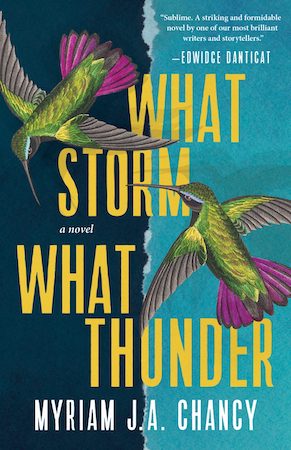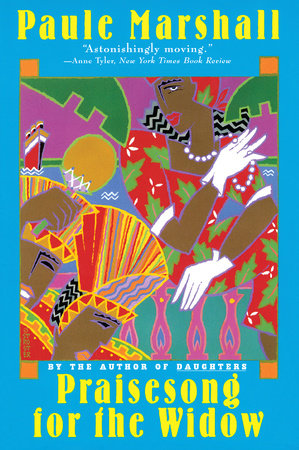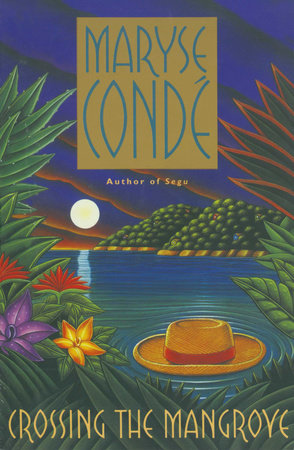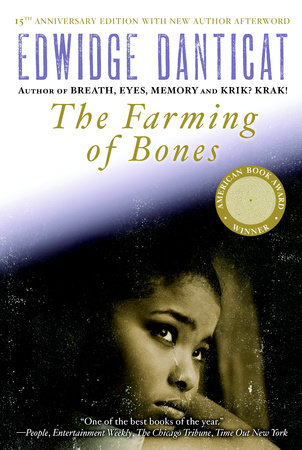If you enjoy reading Electric Literature, join our mailing list! We’ll send you the best of EL each week, and you’ll be the first to know about upcoming submissions periods and virtual events.
When most people think of the Caribbean, they think of paradise or of poverty. One goes to vacation there or one donates to charities in the aftermath of hurricanes, earthquakes, fallen governments. It’s often difficult to entertain the notion that nations of the Caribbean contain more nuanced histories and communities than these two monikers suggest.
Haiti, for one, was the first independent nation in the region, the result of a long-waged war against French colonial powers from the end of the 18th-century into the early years of the 19th: Napoleon Bonaparte’s only other military defeat aside from Waterloo. The Haitian Revolution served as inspiration for many enslaved and colonized people throughout the Caribbean, the Southern United States, and Latin America. In Trinidad & Tobago, it fueled the “70s Revolution” as Black and South Asian citizens of the newly independent nation sought to affirm themselves. When I was born in Port-au-Prince in 1970, this illustrious history was obscured by the terror-filled reign of the Duvaliers, and has been made even more obscure today, after military interventions, assassinations, and two devastating earthquakes eleven years apart that have shaken Haiti’s fragile infrastructures to their core.
Like other Caribbean writers before me, when I wrote What Storm, What Thunder, a fictionalized account of the 2010 Haiti earthquake, in which over 250,000 people died, it was with the intent of creating a space within which the aftereffects of a long and complex history of both triumph and mismanagement could be peeled back to reveal its human pulse. My goal—through the voices of ten distinct characters and their very human response to calamity—was to illustrate both the beauty and the pain of what it might mean to be Haitian, especially in the shadow of a national catastrophe. My novel seeks to draw from Haiti’s contemporary history as much as it does from principles of vodou spirituality and community, like the konbit, or concept of collective good.
I also draw inspiration from other Caribbean writers, especially Caribbean women writers, who also seek to illustrate the wide range of human experience from perspectives particular to their home islands. The Caribbean writers I love to turn to, for escape, to learn, offer more than postcard versions of the Caribbean—they polish their memories like precious gemstones to reveal the multihued perspectives of Caribbean people in all aspects of their lives as they weather loss and love and strive for belonging within their home islands or in exile from them.
Praisesong for the Widow by Paule Marshall
Paule Marshall’s classic tackles themes of lost love, ideals, and spirituality in the journey of her African American protagonist, Avey (short for Avatara) who finds herself compelled to leave a cruise ship in the middle of the Caribbean. Disembarked in the small island of Carriacou, Avey recovers her African roots through local traditions like the “drum dance” and recalls traditions from her childhood in Ibo Landing in Georgia. Fleeting references through sub-headings and epigraphs to Haitian vodou relate the story to a wider web of African retentions through the Francophone Caribbean.
Heading South by Dany Laferrière, translated by Wayne Grady
In a series of interrelated stories, Haitian Canadian writer Dany Laferrière chronicles the transactional and parasitical nature of relationships between local Haitians eking out a living in service industries and foreigners coming into Haiti during the Duvalier régime. The stories were made into a film starring Charlotte Rampling, focusing on relationships between foreign women who, while on vacation in Haiti, take Haitian male lovers without concern for their tenuous lives beyond the enclave of resort hotels.
Frying Plantain by Zalika Reid-Benta
In a series of interrelated short stories, Reid-Benta tells the story of Kara, a Jamaican Canadian girl, torn between her desire to escape the authoritarianism of her grandmother’s household and wanting to still belong to the Jamaica of her mother and aunt, to which she only returns periodically.
Crossing the Mangrove by Maryse Condé
Told in multiple voices, Condé’s tour de force novel re-imagines the entire history of the Caribbean through a wake given for a Cuban man, Francis Sancher who landed in a small village in Guadeloupe where he takes on many lovers as well as enemies. Haunting them all is Xantippe, the Haitian, who lives at the crossroads, where life and death come together and split apart.
The Marvellous Equation of the Dread by Marcia Douglass
In this novel, Douglass weaves an indelible tale of Jamaican life from a deeply spiritual perspective, as she fictionalizes Rastafarian history into a tale for the ages. Bob Marley is reincarnated as a homeless man, Fall Down, who might be a Jamaican Everyman. An unknown deaf woman, Leenah, once Marley’s lover, is a seer who extrapolates the meaning of unexplored spaces between life and death. Told through multiple perspectives, including those of children, and what Douglass calls “bass riddim,” the author brings to life the rhythms of reggae through its many incarnations through her very prose.
The Farming of Bones by Edwidge Danticat
Much of Caribbean fiction attempts to retell effaced aspects of the history of the region; Haitian American author Edwidge Danticat does just this in a tale of an orphaned Haitian girl, Amabelle, living in the Dominican Republic at the time of the Trujillo regime and who must return to Haiti as a young adult in order to flee the 1937 massacre ordered by Trujillo in the border region between the two countries. Though a fictionalized account, the novel brought the massacre, which wiped out thousands of Haitians in the border zone, to broader light.
Moonbath by Yanick Lahens, translated by Emily Gogolak
Yanick Lahens—perhaps the best known Haitian female writer writing in French today—won the 2014 Femina Award for this experimentally voiced novel which introduces readers to aspects of Haiti’s colonial and postcolonial history by following the life of Cétoute Olmène Thérèse and that of other women in her family through three generations.
Salt by Earl Lovelace
Winner of the 1997 Commonwealth Book Prize, Earl Lovelace’s Salt is the story of two Trinidadian men, one educated and the other not, both striving for the freedom of their people through very different avenues: education and sports. Told through the lenses of community members surrounding both men, the novel weaves a sonic tapestry of shifting narrative voices and linguistic registers that illustrates a world coming into its own within the context of Caribbean postcoloniality.
Blue by Emmelie Prophète, translated by Tina Kover
Haitian writer Emmelie Prophète’s Blue tells the story of a young woman who reflects on her life story and those of her mother and aunts as she leaves behind Haiti for parts unknown as she transits through Miami. Her memories are saturated with impressions of blue, from the color of the waters surrounding Port-au-Prince to the poignant nostalgia of her memories of a country and community she loves but must leave in order to have a better future.










